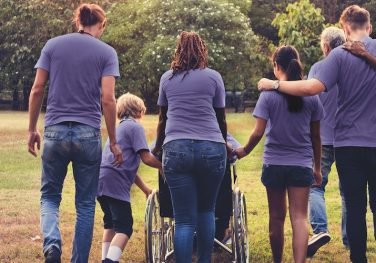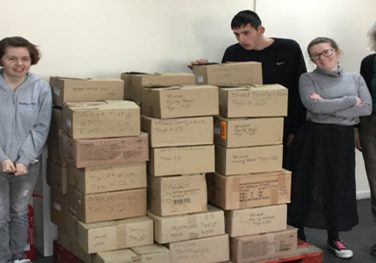City Harvest, giving food another life
Using surplus food to fight hunger
Every month in London, 9.2 million meals are missed by people who can’t afford to eat. At the same time, in the same city, businesses waste over 13 million meals.
City Harvest provides a simple solution: redistributing surplus food to organisations that feed people who are hungry. Volunteers collect nutritious surplus food from restaurants, grocers, manufacturers, wholesalers, hotels and caterers. City Harvest then takes it to charities providing meals to vulnerable people, including homeless shelters, centres for veterans, children’s programs, centres for the elderly, and refuges for women experiencing domestic violence.
The food they redistribute helps these organisations serve thousands of healthy meals each week and reduce their grocery bills – freeing up funds that can be reinvested in other vital support services. Since City Harvest launched five years ago, partner charities have received over £8.5 million in free food.
They’re also diverting food from landfill where it would release greenhouse gases which lead to climate change. They’ve prevented more than 11,000 tons of greenhouse gases from polluting the environment over the past five years.
- Each day 15,000 Londoners eat a nourishing meal because of food redistribution charity City Harvest.
- In the past five years, City Harvest has saved its charity partners £8.5 million through their free food deliveries.
- By diverting edible food waste from landfill, they’ve prevented 11,000 tons of greenhouse gases from polluting the planet.

Keeping City Harvest food vans on the road
City Harvest needs more vans, drivers and money. There’s already a waiting list of 112 community organisations across London who’ve requested their deliveries. And they’ve identified more than 900 charities across London that could benefit from their work.
Our grant of £25,000 will go towards running a van for a year, redistributing surplus food. It’ll help more charities reduce their annual food budgets so they can invest more in vital support services, such as counselling, education, shelter, employment programmes and support for vulnerable children.
More Success Stories

Trees for Cities – Edible Playground project

Random Acts of Kindness

